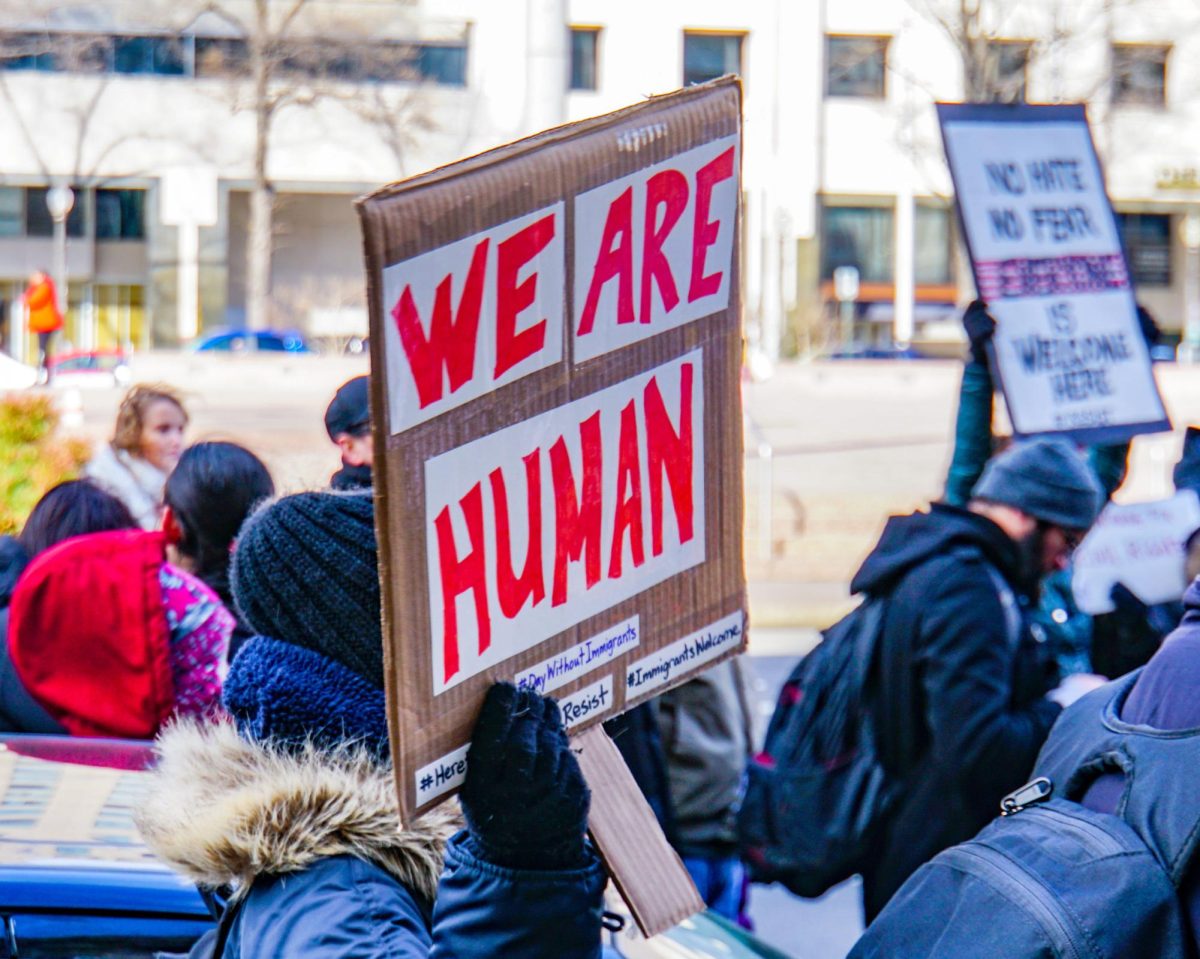Albert Einstein, Andrew Carnegie, Joseph Pulitzer. What do these great Americans all have in common?
Yes, they were all leaders of their respective industries and massive contributors to American society, but they have something else in common as well: All of them were immigrants to this country.
Would they be welcome here in 2025, when anti-immigrant sentiment is rampant, largely due to the policies of the Trump administration?
President Trump signed an executive order last month to “protect the meaning and value of American citizenship.” The order argues that the Constitution does not guarantee citizenship to those whose parents were in the country illegally or temporarily at the time of child’s birth.
Thankfully, two federal judges have blocked the executive order. Judge Deborah Boardman said the order “conflicts with the plain language of the 14th Amendment, contradicts 125-year old binding Supreme Court precedent” and “runs counter to our nation’s 250-year history of citizenship by birth.”
Some immigrants are rightfully nervous.
One Hispanic LFHS student, who asked to remain anonymous, told me, “It’s scary now. I see videos and headlines online of ICE going into schools and arresting kids.”
He added, “My parents are not citizens, but I was born in America. That should give me birthright citizenship, but the president wants to revoke that.”
Despite multiple judges halting this presidential directive, the deportation of illegal immigrants is still a major focal point for the Trump administration. According to the U.S. Department of Homeland Security, 4,745 illegal immigrants of Latin American origin have been deported since the inauguration of President Trump.
President Trump uses migrant crime as a key reason for the heightened border security. However, these fears are overblown.
Per the Customs and Border Protection (CBP) website, excluding those arrested for illegal entry, only 6,113 unauthorized migrants were convicted of a crime in the 2024 fiscal year. To put that number in context, they make up just 0.04% of the 13.7 million undocumented immigrants in the country.
Some supporters of the deportations call for immigrants to take legal pathways to citizenship. Unfortunately, President Trump is making this harder.
On his first day as president, he ordered the CBP-One app to be shut down, citing concerns with smuggling and cybersecurity. An estimated 1 million people have used the app to legally enter the country since its inception in 2020. The app allowed asylum seekers to provide any missing information about themselves and make appointments to be processed at points of entry.
The Institute on Taxation and Economic Policy (ITEP) calculates that undocumented immigrants paid approximately $96.7 billion in federal, state, and local taxes in 2022, yet are not eligible for federal social services. Based on U.S. Census data, illegal immigrants make up approximately 4.8% of the workforce in this country. The American Immigration Council estimates that it would cost the government about $315 billion to deport every illegal immigrant from this country, and that it would be near impossible without some type of mass detention camp.
Is there a historical precedent for mass deportations on this large of a scale?
President Trump has previously pointed to Dwight Eisenhower’s “Operation Wetback” (titled after a racist slur) as one of his benchmarks for success. Trump promised, “On day one, we will begin the largest domestic deportation operation in the history of our country, bigger than Dwight Eisenhower.” The original operation, which took place in 1954, was known for its military-style tactics to remove up to 1.5 million Mexican immigrants, both legal and illegal, from the United States.
Looking back, the operation has been criticized as xenophobic and a violation of people’s civil rights.
In this polarized political climate, we should all remember to have basic human empathy for one another. Nobody wants to see preventable crime or families ripped apart. Try to understand the positions that other people are in and why they make certain decisions.
Ultimately, the first step to bridging divides and breaking down barriers is listening.









Jason Kowalski • Feb 18, 2025 at 6:20 pm
“Ultimately, the first step to bridging divides and breaking down barriers is listening.” Yes, people need to listen. It’s an expletive shame that few are willing and able to.
Those who refuse to listen to the laws of their host country, especially those who threaten to murder the families of constables, shall not be allowed to harm the rest of us. Those who refuse to listen to people’s fundamental civil rights – let alone the more nebulous aspects of relevant law – are annoyances at best and tyrants at worst.
Most people, instead of falling into either of those categories, have good intentions. These could be clouded by ignorance, partisanship, soliphistic empathy gaps, or some other factor. Ultimately, the best way to overcome those factors is to listen to each other.
We need to consider what’s best for our country, our shared world, and the values which we hold dear. Balancing factors is difficult even with total perfect information, it’s almost impossible when blind.